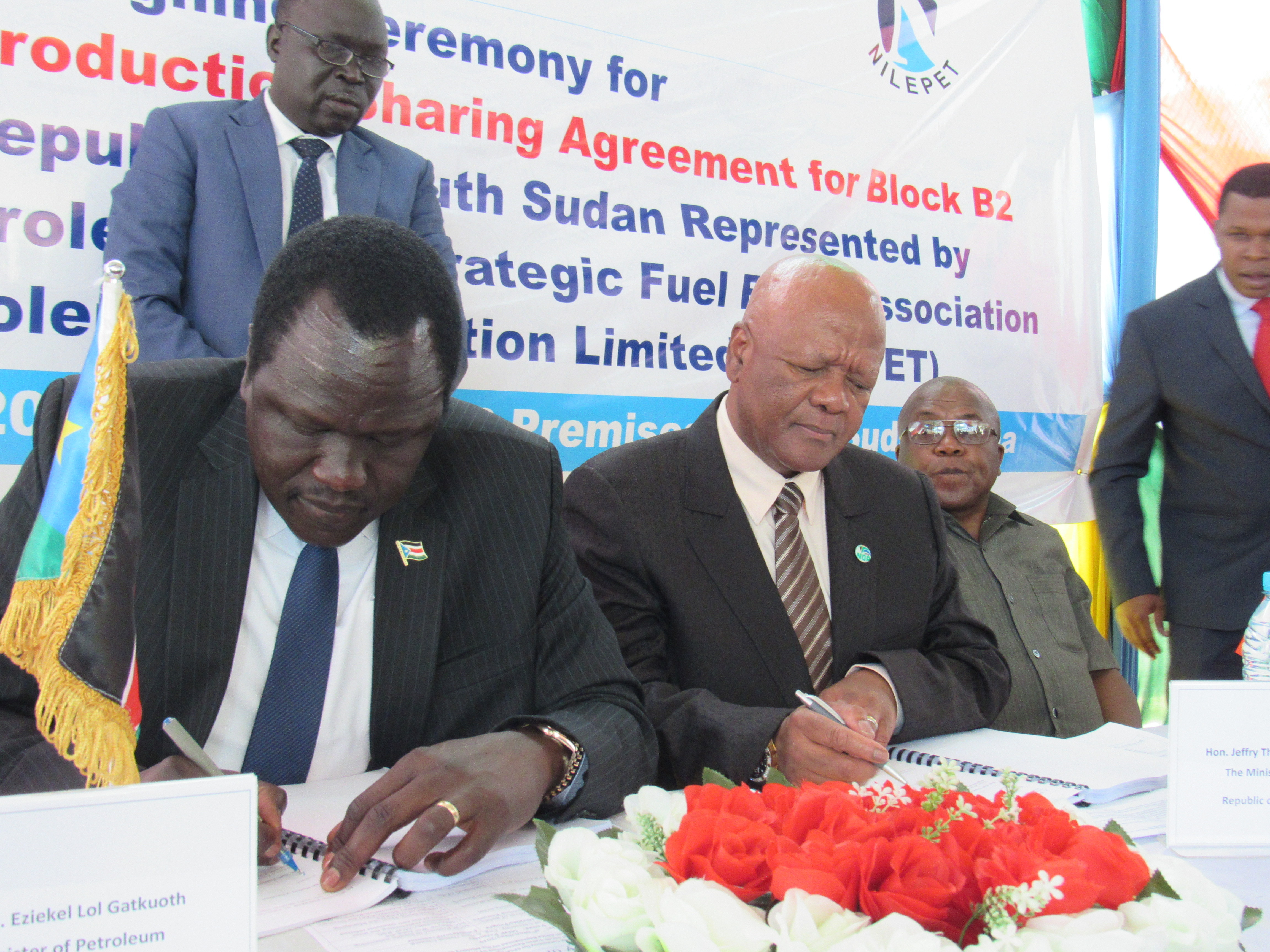
Sudan People's Liberation Army (SPLA) beef up security at Adar oilfield, South Sudan, March 21, 2017. (Xinhua/Gale Julius)
South Sudan will resume oil production in Block 5A and add more than 15,000 barrels to the current daily crude output of 178,000 barrels, petroleum minister Awow Daniel Chuang of South Sudan said Monday.
JUBA, Oct. 7 (Xinhua) -- South Sudan will resume oil production in Block 5A and add more than 15,000 barrels to the current daily crude output of 178,000 barrels, petroleum minister Awow Daniel Chuang of South Sudan said Monday.
Chuang said South Sudan has reached an agreement with neighboring Sudan, which provides the only transport route for Juba's oil to the export market, to resume production in Tharzat and Mala oilfields.
"The challenge of Block 5A was actually being cut by Sudan because of the quality of crude oil that does not fit the Khartoum refinery. But we have reached an agreement with Sudan for us to introduce up to 15,000 per day," said Chuang in a statement issued in Juba.
The minister said the reopening of Block 5 was delayed due to challenges in accessing Sudanese refineries, but those constraints have been addressed.

Ezekiel Lol Gatkuoth (L), South Sudan's petroleum minister and Jeff Thamsanqa Radebe (2nd,L), South African minister of energy sign agreements in Juba, capital of South Sudan,May 6, 2019. (Xinhua/Daniel Majak)
"We are now moving very fast. Before the end of the year, we should have people on the ground in which we are going to produce not less than 15,000 barrels per day," he added.
South Sudan has the third-largest oil reserves in Sub-Saharan Africa, estimated at 3.5 billion barrels and much of the reserves being unexplored.
However, a civil war that erupted in late-2013 affected the country's oil industry, with production declining from 350,000 barrels per day in 2011 to less than 130,000 in 2014 amid soaring inflation.
Following the signing of a new peace deal in September 2018, conflict reduced and previously closed oilfields have reopened, and the landlocked country is hoping to raise daily output to nearly 200,000 barrels by the end of 2019. ■



